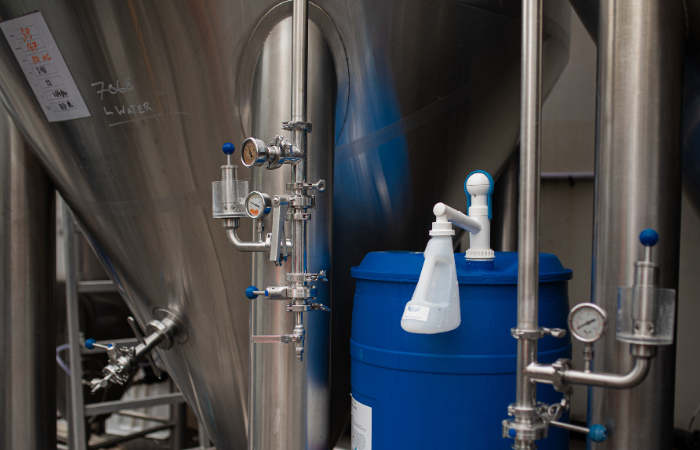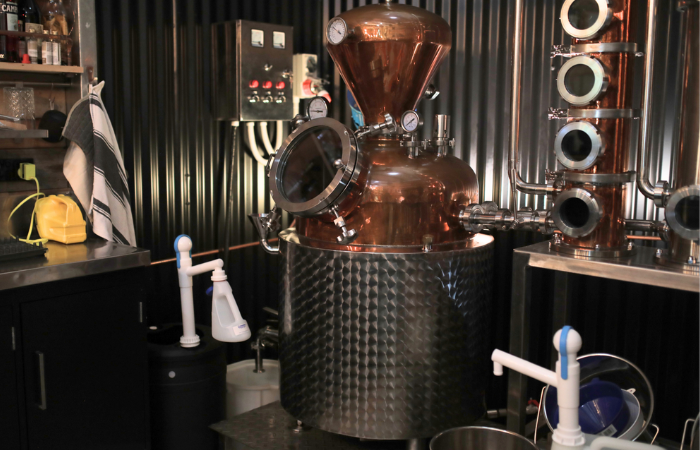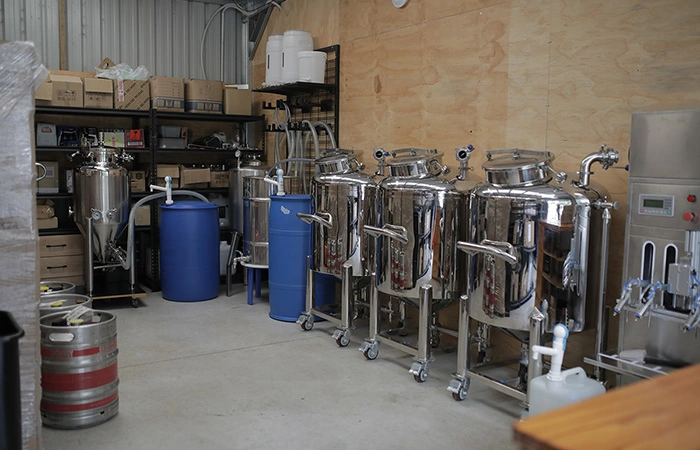DAIRY FARM CLEANING BEST PRACTICES
Eziaction drum pumps are an integral part of cleaning best practices on high performing dairy farms around the world. Get our top cleaning tips for dairy farmers.

Eziaction drum pumps are an integral part of cleaning best practices on high performing dairy farms across New Zealand and around the world. When looking at hygiene and cleaning protocols on a dairy farm, there are a number of key areas to consider which have different importance at different times of the year. These include:
- Milking sheds
- Milking machines
- Teats
- Hooves
- Calf shelters
Milking Sheds
Milking sheds are heavy traffic zones where the entire herd can pass through twice a day, but sometimes at the end of milking it can be easy to rush cleaning in order to get away. It's important to hose down every surface inside the building that has come into contact with animals, humans or any other external biological matter, and to do this at the end of every milking. Care should be taken to not splatter milking machines with manure during the process.
Milking Machines
Milking machines get intensive use and are shared by many animals during each session. The risk of contamination and spreading mastitis and other infections is high, making this one of the most important cleaning protocols on the farm: thorough cleaning and disinfection is critical. Common cleaning agents utilise acid or an alkaline and all can be transferred safely using Ezi-action hand drum pumps. Best practice is to use a chlorinated alkaline cleaner; and peracetic acid mixed with hydrogen peroxide is also commonly used but the dilution needs to be carefully measured so it does not damage milking teat rubbers. It's important to constantly monitor teat cups and liners and hose off any manure immediately, especially in warm dry conditions otherwise it dries on and then requires a scrub with soap and water which takes extra time and effort.
Teats
Mastitis is a key concern for dairy farmers when considering teat hygiene. It can be an issue right from milking, to once cows have finished (if they lie down), and also when drying off. During milking the risk of contamination is high because many animals are sharing the same equipment, and immediately after milking a cow's teat sphincter can stay open for two hours which makes it susceptible if the cow lies down in dirt or manure. A combined detergent and disinfectant should be sprayed on all teats and wiped with a clean cloth or paper towel.
Hooves
Lameness has been identified as one of the three biggest issues that can affect the health and wellbeing of a dairy herd. Most lameness is caused either on the farm race going to and from milking, and in the milking shed. A two pronged approach of prevention and management works best: firstly by providing a farm race surface that compacts down and does not have hard stones that hurt cows as they walk to milking or that they carry onto the concrete surface of the shed to cause more damage. Secondly it is good to apply a penetrating (but sensitive) disinfectant in footbaths to disinfect hooves and prevent further issues.
Calf Shelters
Calf rearing can be a busy time in the life of a dairy farm where a number of family members are involved, so whilst it's great sharing the workload, this also means potentially more people (and even kids) get responsibilities for hygiene and cleaning. When calves are first born they have no immunity and are at a high risk of pneumonia and scours as well as many bacteria. It is critical to use a bedding additive that can kill bacteria like Staph aureus and E. coli, and can also stop outbreaks quickly. When calves are kept in close confinement, pathogens can build up in calf bedding including viruses (rotavirus and coronavirus), bacteria (E. coli and salmonella) or parasites (Cryptosporidium parvum). It is important to regularly clear out all bedding to wash and disinfect surfaces, and any disinfectant used must be a broad spectrum covering all three types of pathogens.
Talk to your vet and local farm supply store for the best combination of disinfectants and cleaning agents to use, and rest assured that your Ezi-action drum pump can handle any of them, and will continue to dispense them for many years to come.



